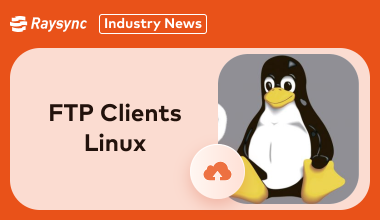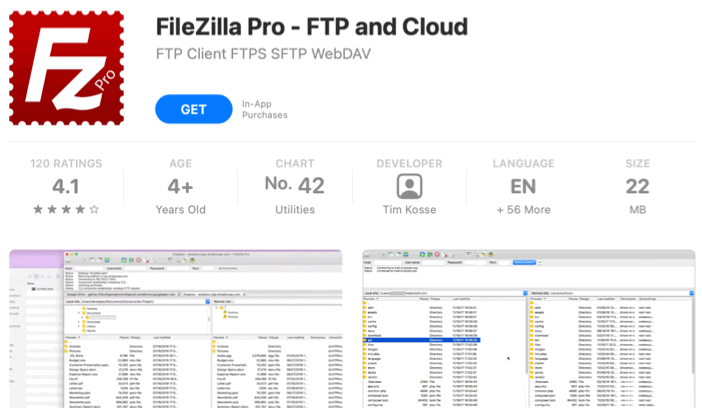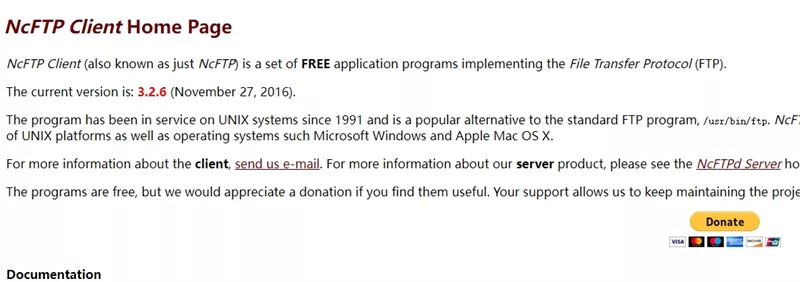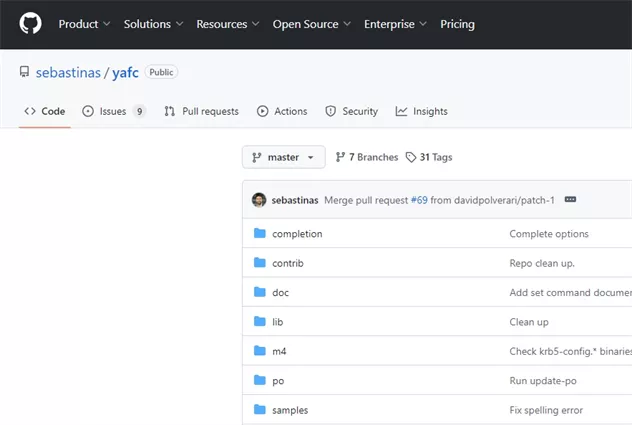Best 4 FTP Clients for Linux [Latest Update]
October 23, 2024Finding the best FTP client for Linux can be a challenge. This blog post highlights 4 popular options known for their user-friendly interfaces and powerful features.
Whether you're a developer or business owner, these FTP clients will simplify your file transfer process. Let's find the perfect fit for your needs.

What Is FTP Client Linux
An FTP client for Linux is a software application that enables users to transfer files to and from a remote server using the File Transfer Protocol (FTP) or its secure variants, SFTP and FTPS.
These clients provide a user-friendly interface or command-line options for managing file transfers, allowing users to upload, download, delete, and organize files on remote servers.
List of 4 FTP Clients for Linux
When it comes to file transfers on Linux, there are several excellent FTP client to choose from. Each of these clients offers unique features, making them suitable for different types of users. Here are 4 of the best FTP client for Linux.
1. FileZilla
FileZilla is an open-source software known for its user-friendly interface and powerful features. It supports FTP, SFTP, and FTPS, making it a versatile choice for secure file transfers.
With FileZilla, you can easily manage multiple connections and transfer files with a simple drag-and-drop feature.

Pros:
- Cross-platform compatibility (Windows, macOS, Linux)
- Open-source with a strong community for support
- Drag-and-drop interface for easy file management
- Supports FTP, SFTP, and FTPS for secure transfers
Cons:
- Installation files may include adware, so users should be cautious
- The interface might seem cluttered for new users
Pricing Model
FileZilla is free to use, which makes it a popular choice among users. However, for additional features like support for cloud services, you can upgrade to FileZilla Pro for $19.99.
2. Linux Built-in FTP
Many Linux distributions come with a built-in FTP client that can be accessed through the terminal. This native option is perfect for users comfortable with command-line interfaces.
The built-in FTP client allows you to perform basic file transfers quickly and efficiently, making it suitable for simple tasks.
Pros:
- No installation required; readily available on most Linux systems
- Lightweight and fast for basic file transfers
- Ideal for users familiar with command-line operations
Cons:
- Limited features compared to graphical clients
- Can be less user-friendly for beginners
Pricing Model
The built-in FTP client comes free with your Linux operating system. There are no hidden costs, making it an accessible option for anyone looking to transfer files.
3. NcFTP
NcFTP is a powerful FTP client designed for users who need speed and efficiency in their file transfers.

Known for its solid features and reliability, NcFTP can handle large file transfers and offers a command-line interface for those who prefer a more hands-on approach.
Pros:
- Fast performance, especially for large file transfers
- Command-line interface with scripting capabilities
- Supports various FTP features like bookmarking and directory listing
Cons:
- Lacks a graphical user interface for those who prefer visual interaction
- May have a steeper learning curve for beginners
Pricing Model
NcFTP is free to use, making it a cost-effective choice for users who need an efficient FTP solution. There are no paid versions available.
4. Yafc
Yafc (Yet Another FTP Client) is a feature-rich FTP client that operates from the command line. It’s designed for users who want a more modern alternative to traditional FTP clients.

Yafc offers advanced functionalities like tab completion, background transfers, and directory bookmarks, enhancing the file transfer experience on Linux.
Pros:
- Modern command-line interface with intuitive features
- Background transfers allow users to continue working while files are uploaded or downloaded
- Supports SFTP and FTP for secure file transfers
Cons:
- Command-line interface may be challenging for users who prefer graphical tools
- Requires some learning to master all features
Pricing Model
Yafc is free to download and use, making it a great option for users looking for an efficient FTP client without the cost. Its open-source nature offers continuous updates and community support.
How to Install FTP Client Linux
Installing an FTP client on Linux is quite a simple task, thanks to the variety of options available. Whether you’re an expert Linux user or just starting out, getting your favorite FTP client up and running can be done in just a few steps.
You can follow these steps to install FTP client Linux:
- Open Terminal: Start by opening the terminal on your Linux desktop. You can usually find it in your applications menu.
- Update Package List: Before installing any software, it's a good idea to update your package list.
- Run the command: sudo apt update
- Install the FTP Client: Depending on which FTP client you want to install, use the following commands:
- For FileZilla: sudo apt install filezilla
- For NcFTP: sudo apt install ncFTP
Launch the Client: Once the installation is complete, you can find your FTP client Linux in the applications menu or launch it directly from the terminal by typing its name.
High-speed Alternative for FTP Client Linux - Raysync
When traditional FTP clients don’t meet the needs of modern data transfer, Raysync emerges as a high-speed alternative tailored for FTP client Linux users.
Unlike conventional FTP tools, Raysync utilizes UDP-based technology, ensuring rapid and reliable file transfers, even for large files and over long distances. This makes it an excellent choice for businesses or individual users who require efficient data transfer without compromising security.
Raysync also offers advanced features like AES-256 encryption to keep your data safe, as well as centralized management for monitoring and access control. Whether you’re moving files within your organization or sharing with external partners, Raysync provides a streamlined experience designed to improve productivity.
Pros:
- Utilizes UDP-based transfer protocol for unmatched speed.
- Strong AES-256 encryption ensures secure data transfers.
- Centralized monitoring and management features enhance control and oversight.
Cons:
- Primarily aimed at enterprise users, which may not suit casual users.
Pricing Model
Raysync offers flexible pricing plans to accommodate all your needs. It includes a free trial, allowing users to test the platform before committing. Pricing is customized based on data transfer volumes and specific feature requirements.
The End
Choosing the right FTP client for Linux significantly impacts file management. Options like FileZilla, the native client, NcFTP, and Yafc cater to diverse preferences. For advanced security and efficiency, Raysync excels with high-speed transfers. The right SFTP client enhances productivity and streamlines file management. Enjoy your Linux experience!
You might also like

Industry news
January 17, 2025Experience the Ultimate Solution for Encrypted File Sharing for Business. Simplify file transfers and protect sensitive information with our secure and reliable platform. Boost productivity and collaboration while ensuring data privacy.

Industry news
May 9, 2025Learn how TCP file transfer ensures reliable network transfer, with practical examples and an easy breakdown of how data travels securely using TCP.

Industry news
August 29, 2024Discover 5 easy ways to send large files fast without hassle, including free options.